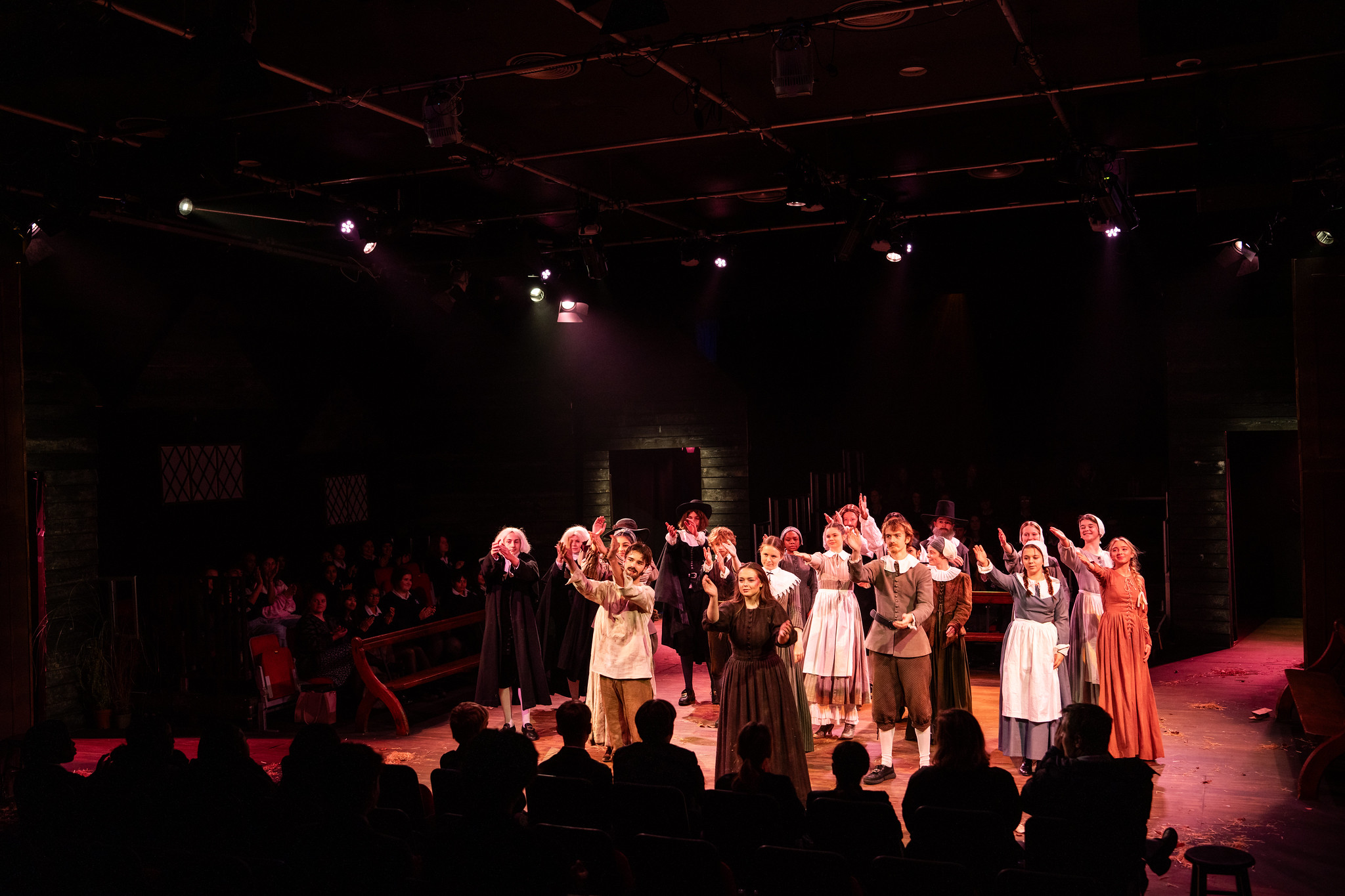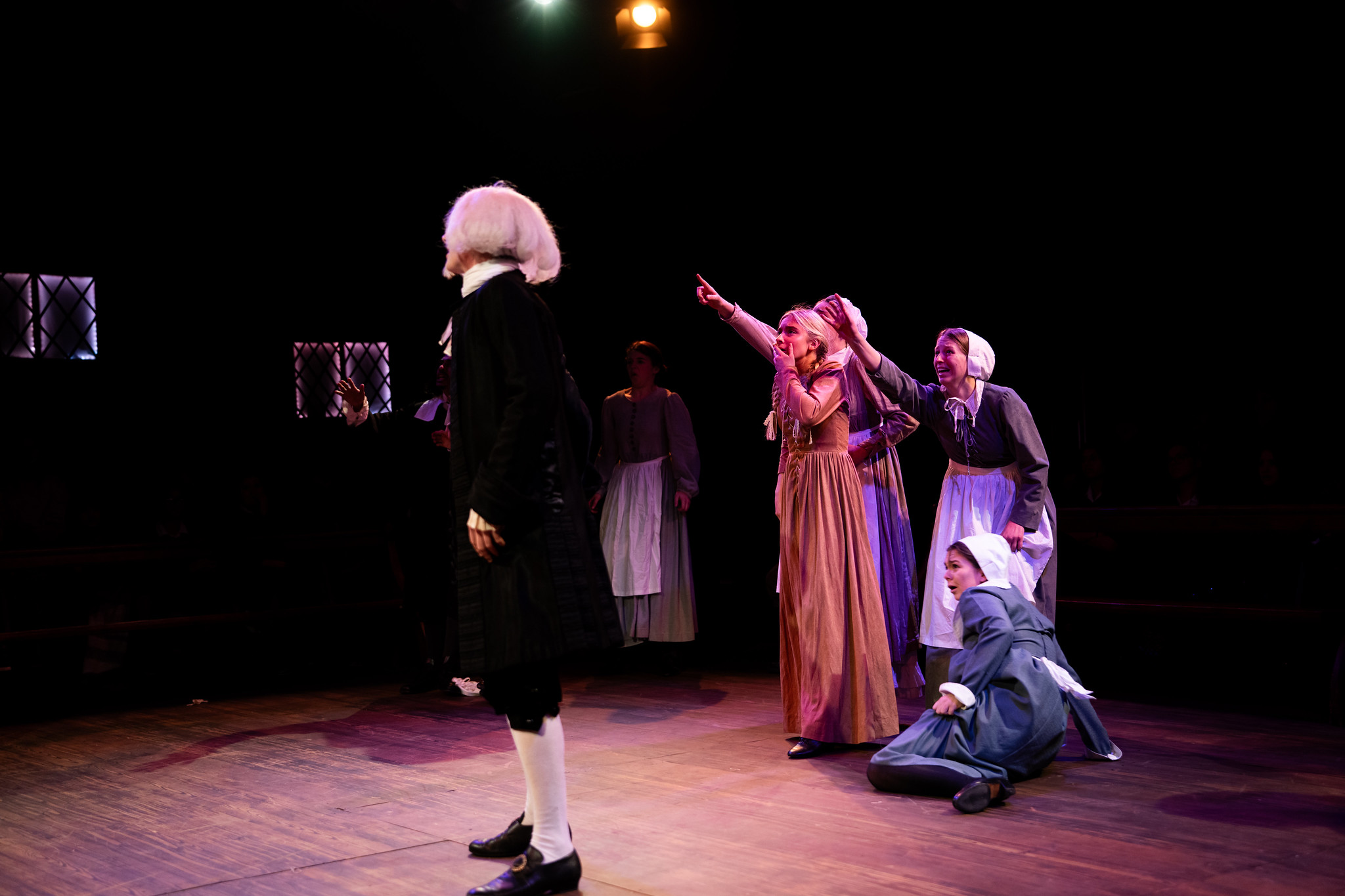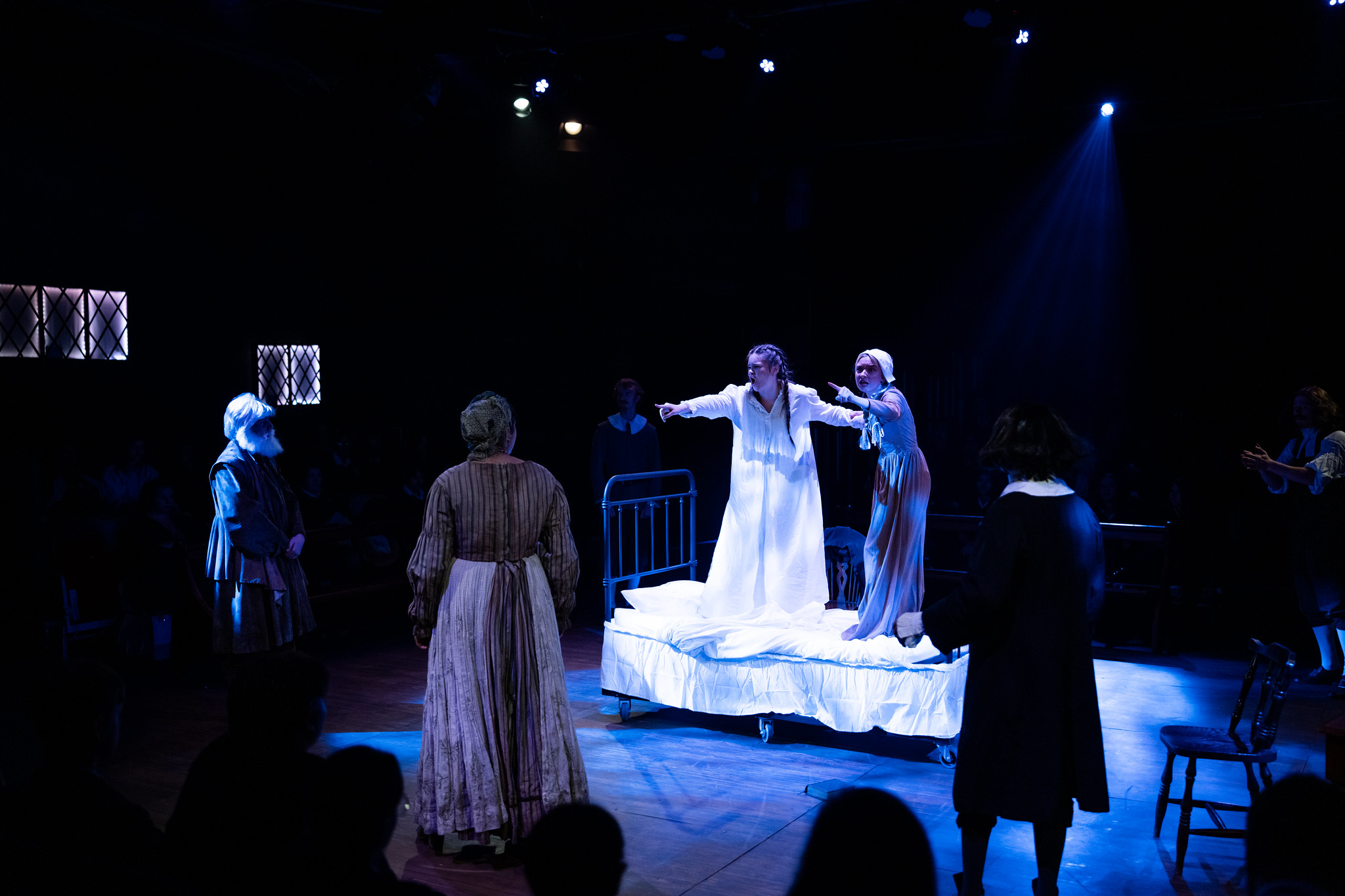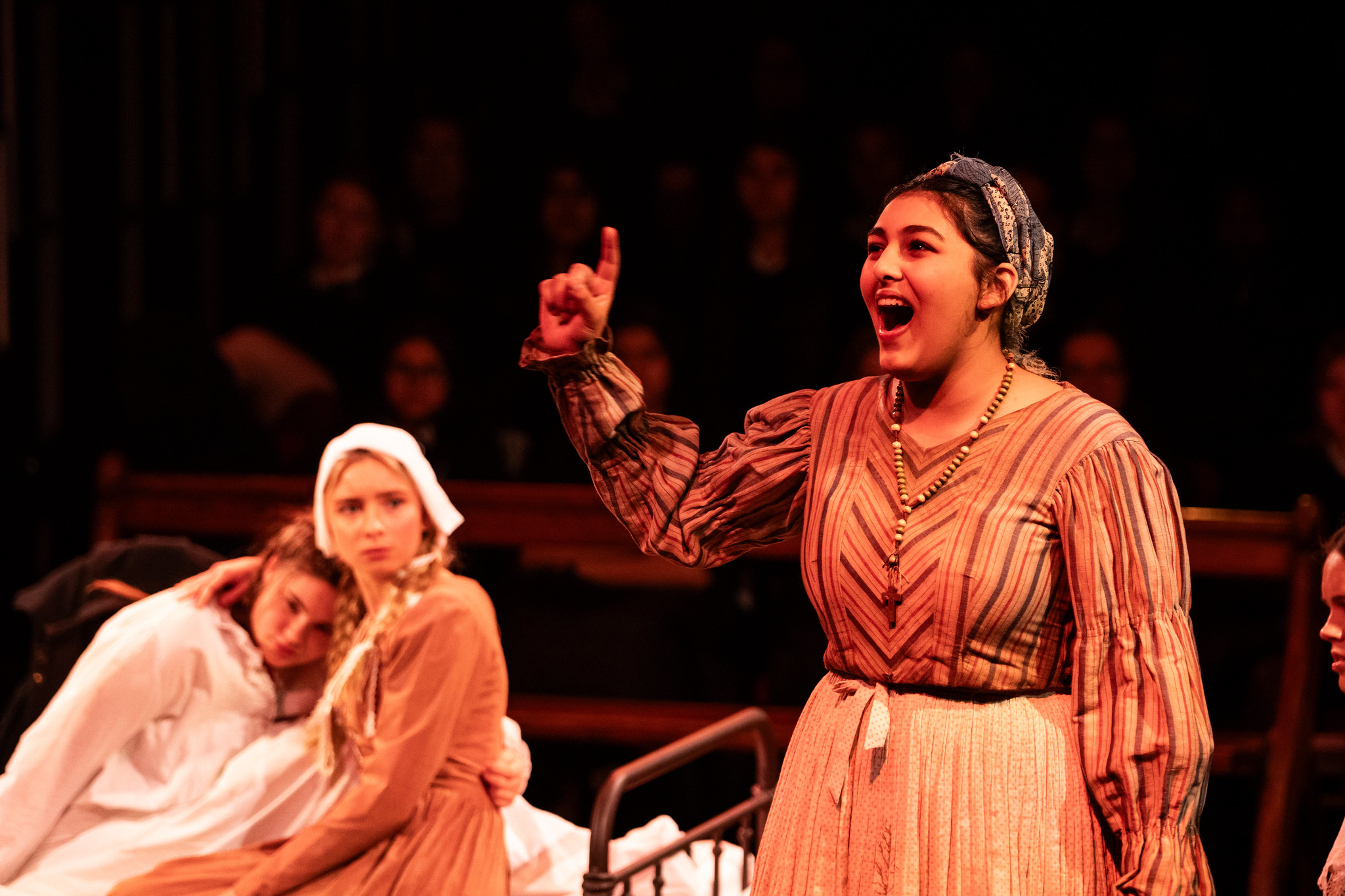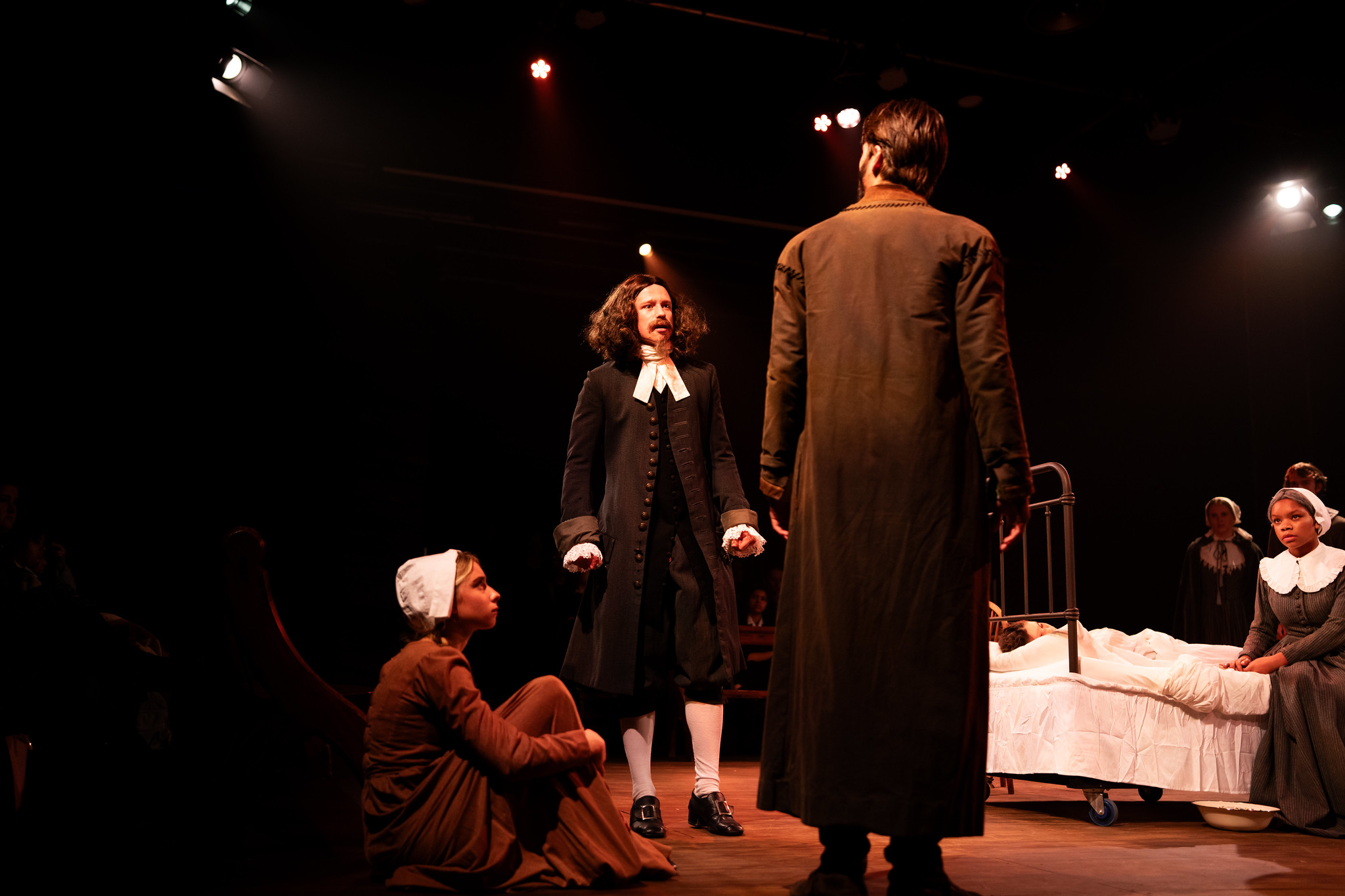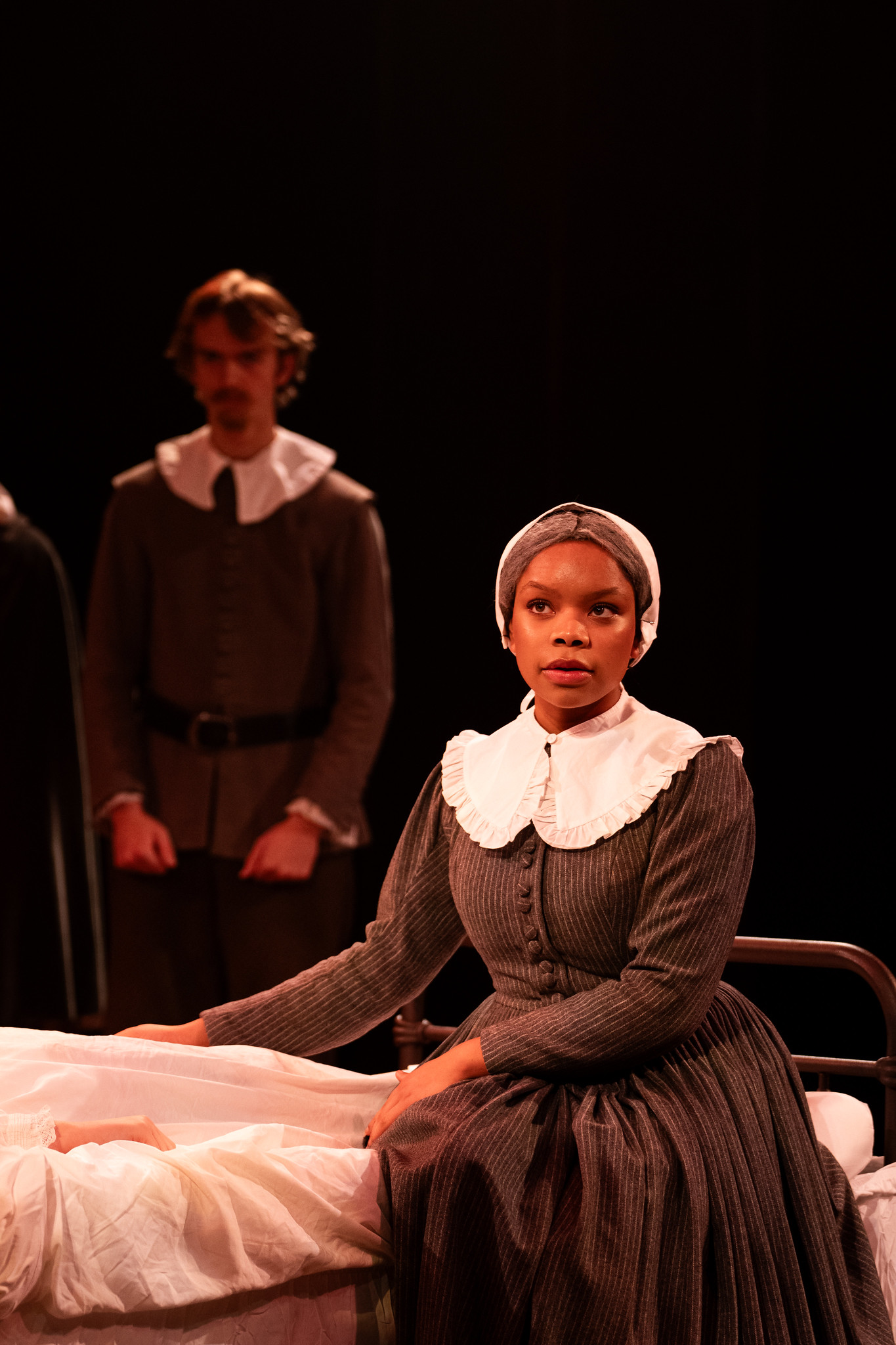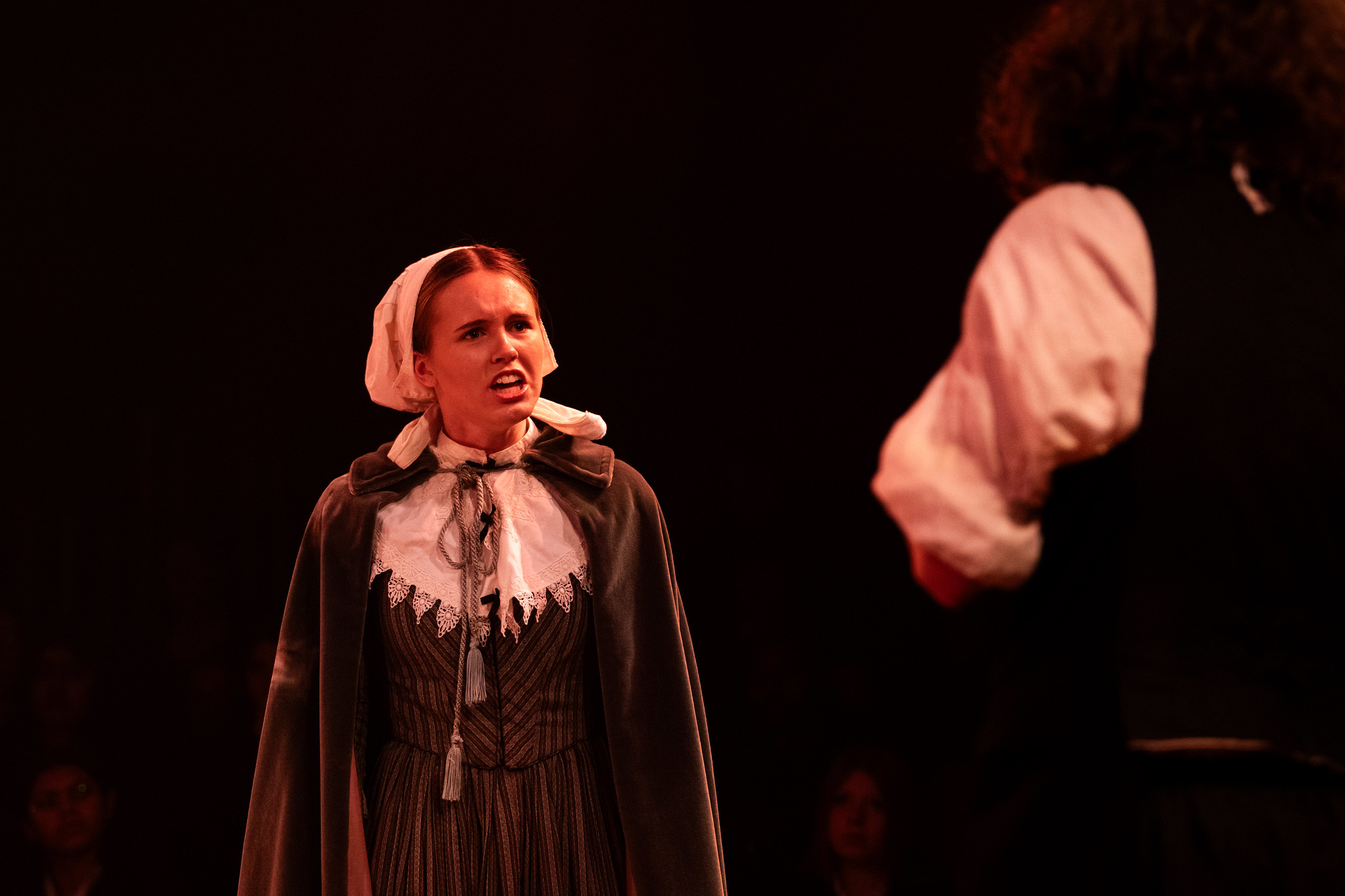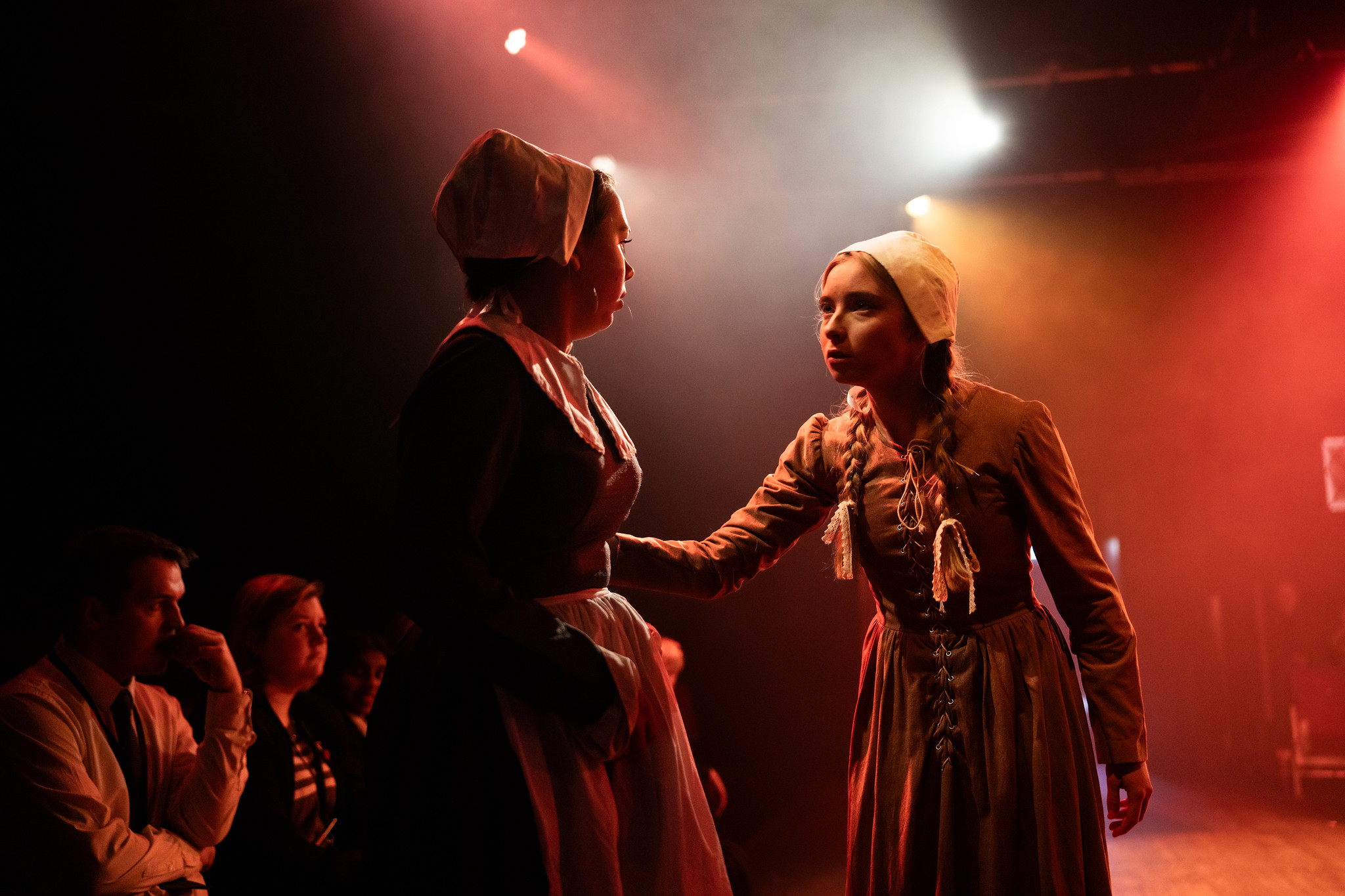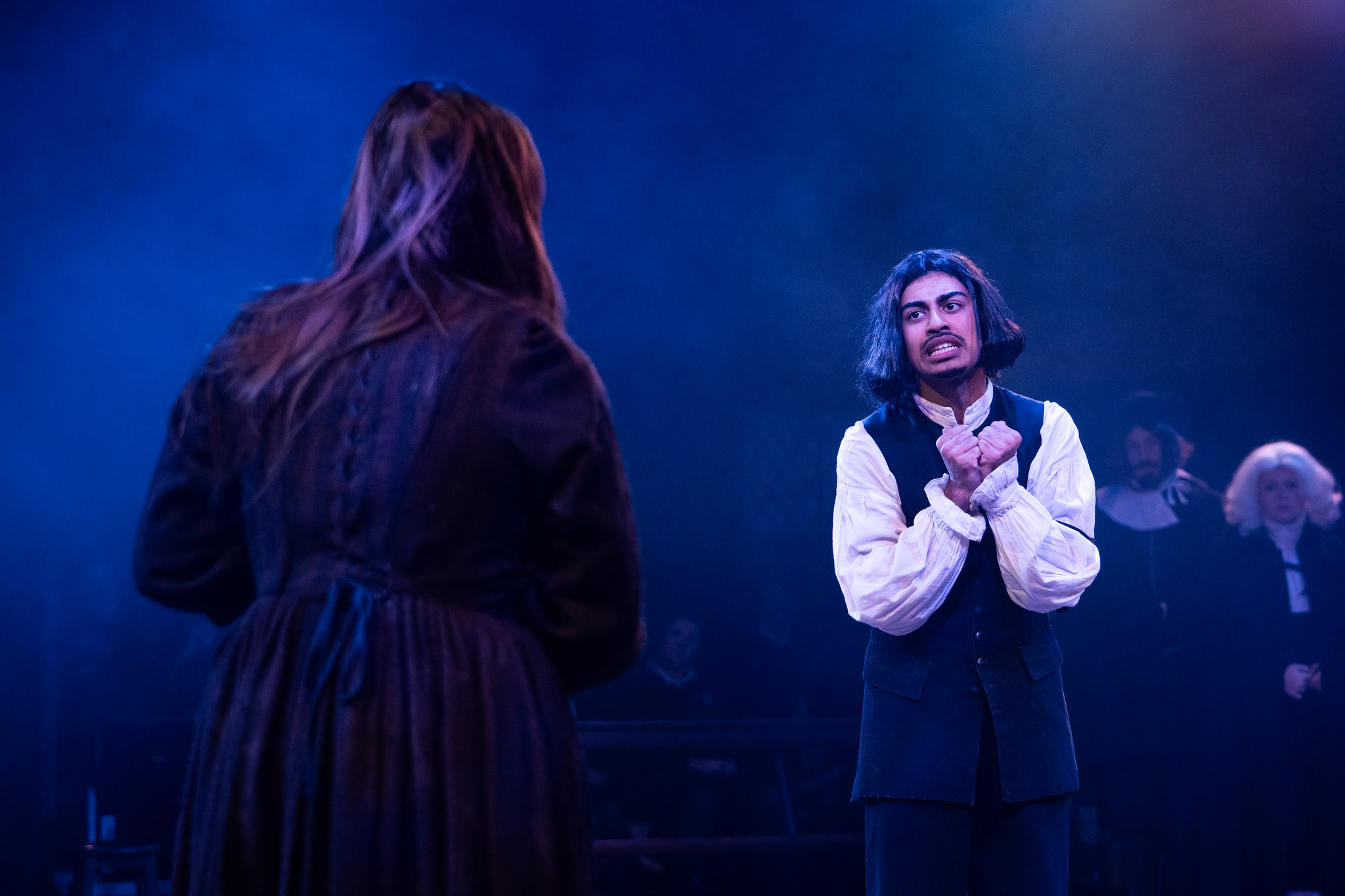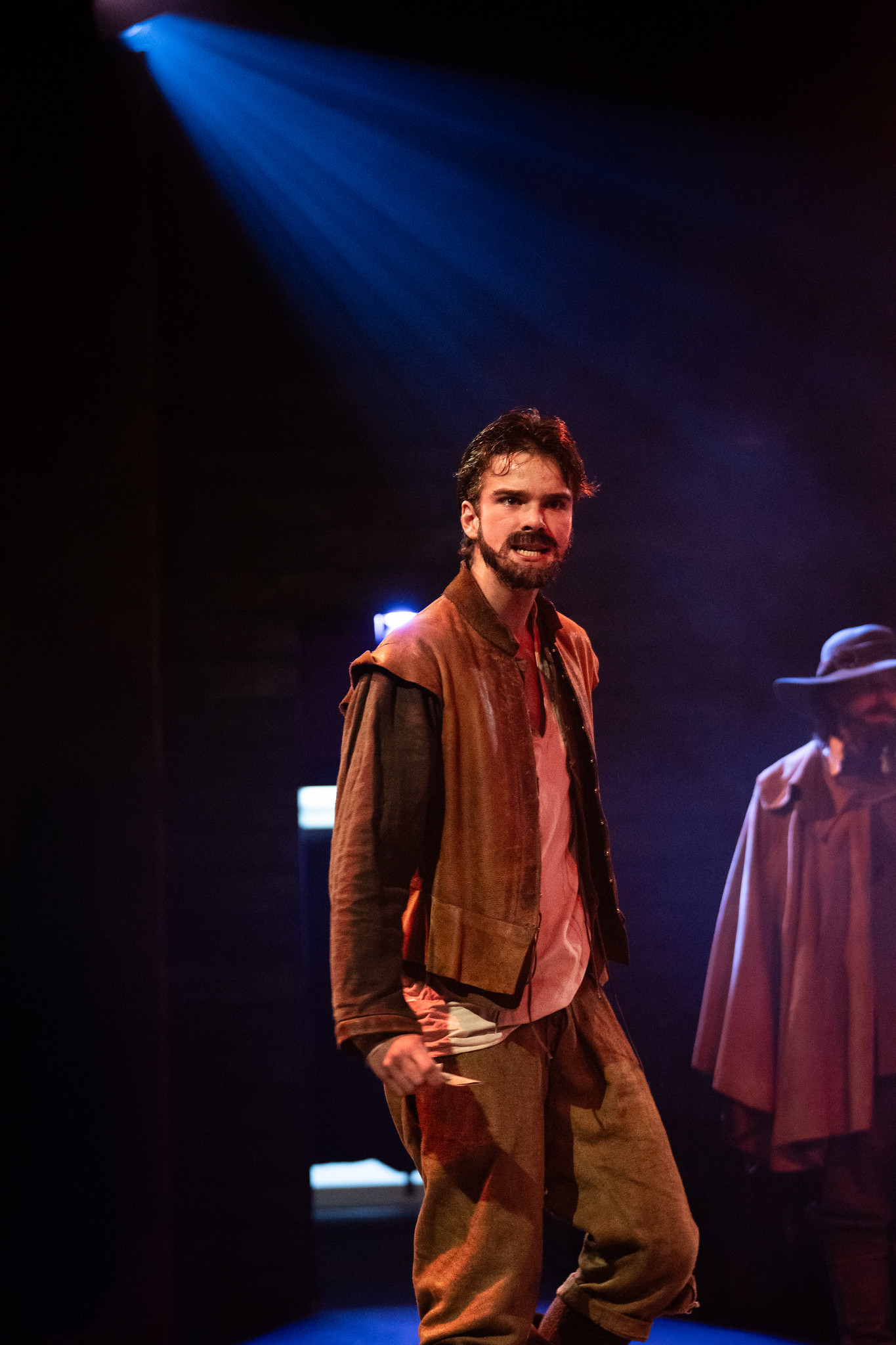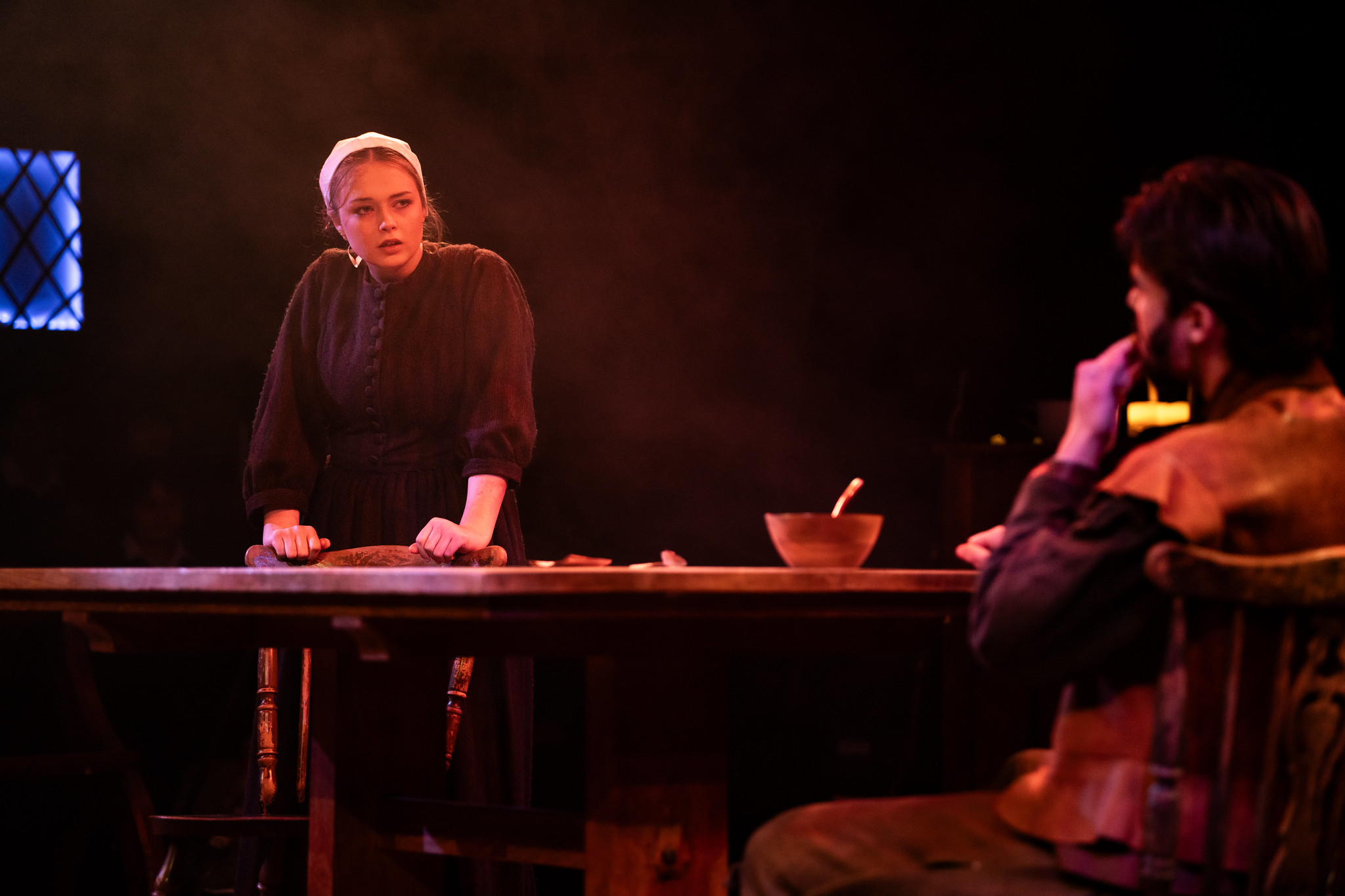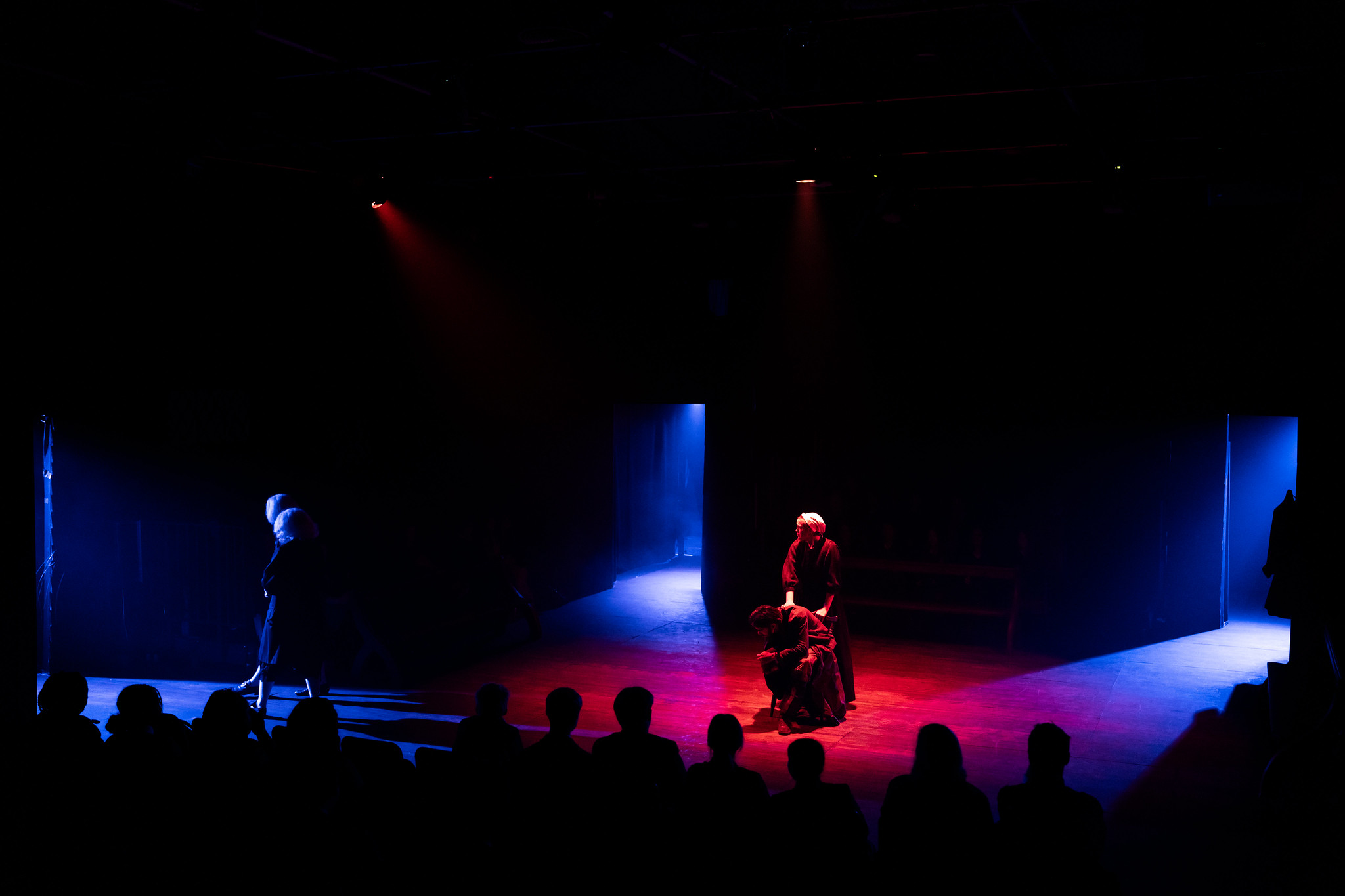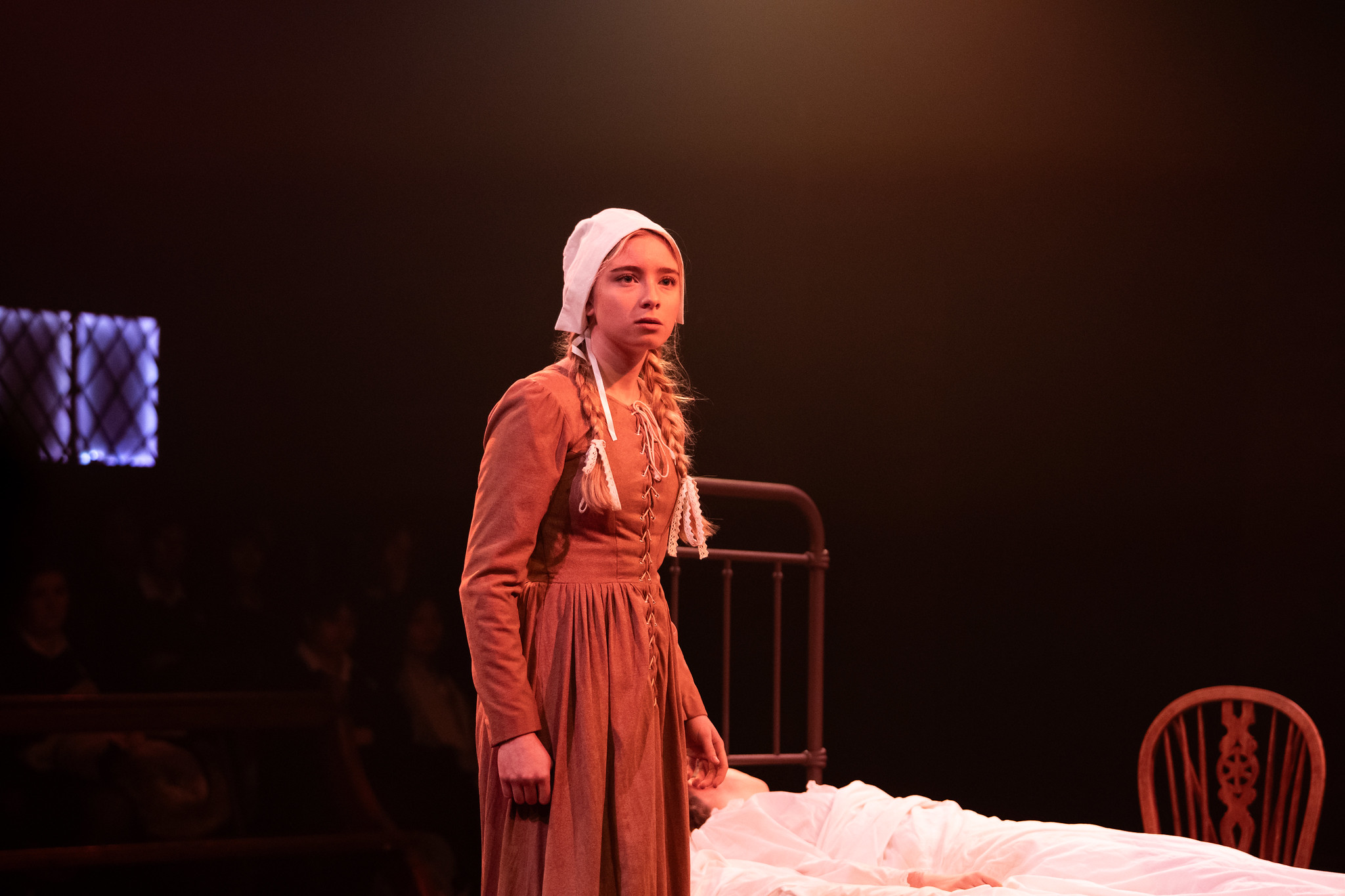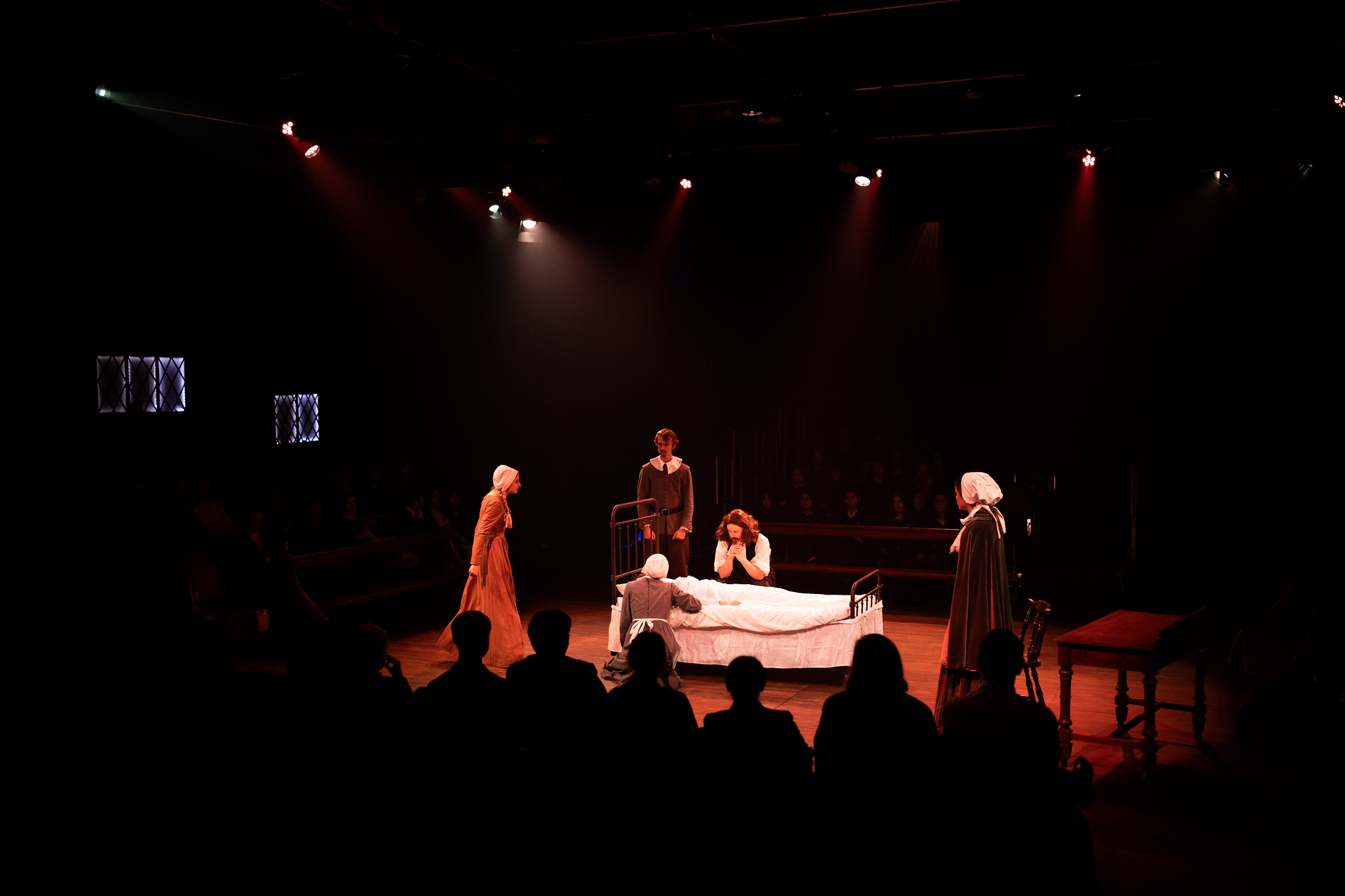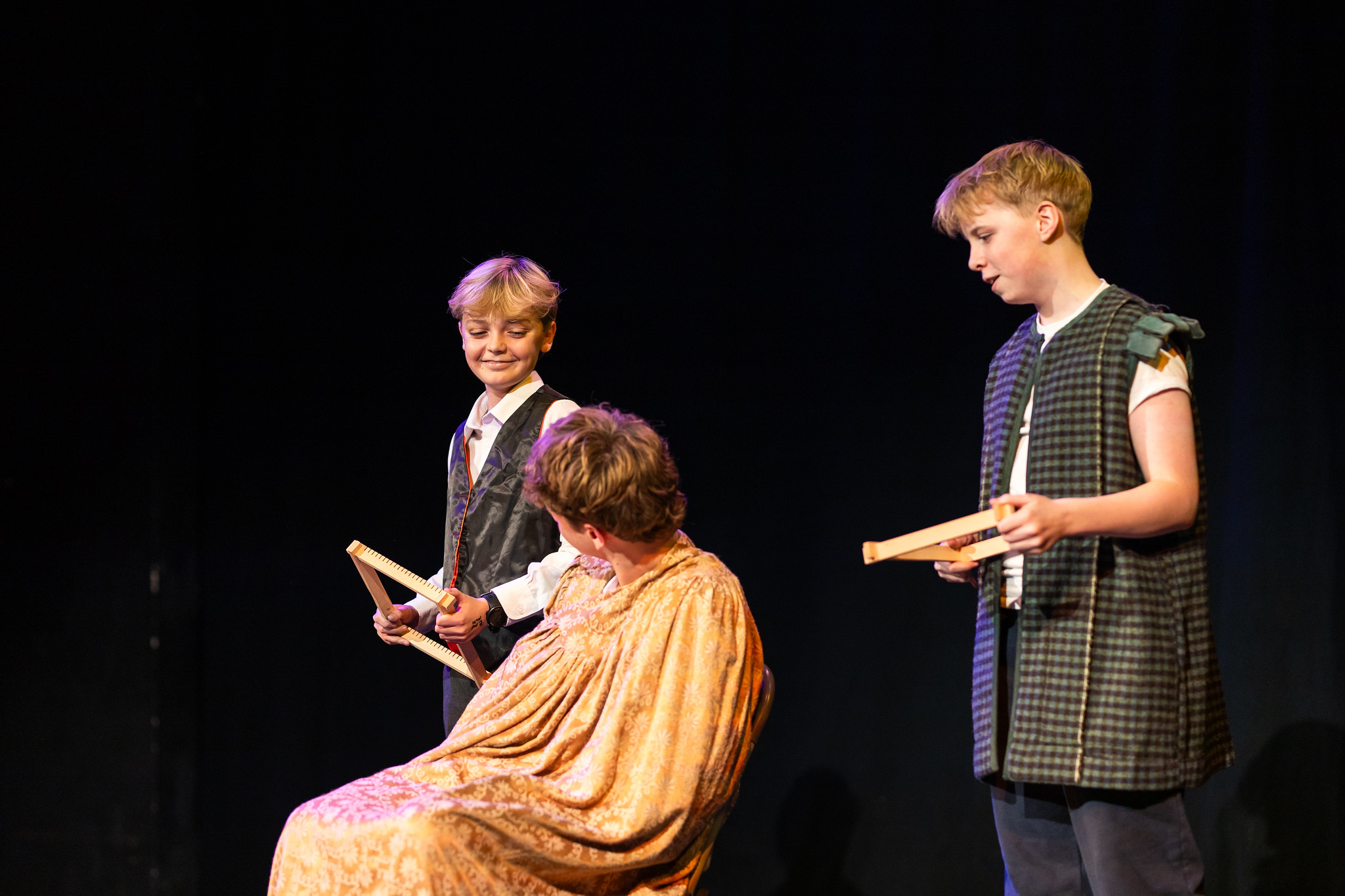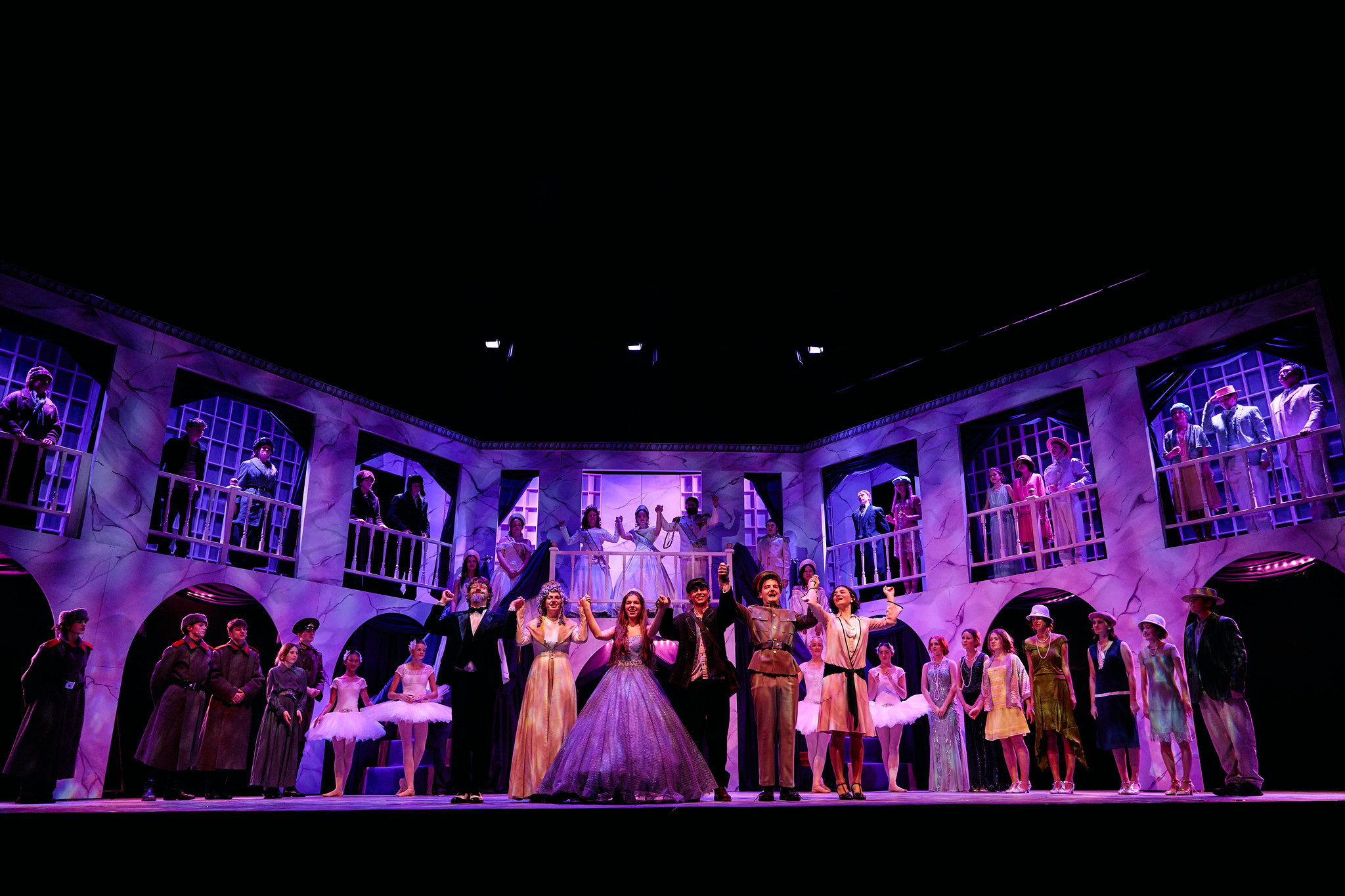
From the moment The Crucible was announced months ago, the theatre team set to work planning how to transform the Christopher Lee Theatre into their next masterpiece of set design. Anyone lucky enough to have a ticket will know that the moment you stepped into the immersive space they created, with incense drifting through the air and ethereal light glowing through the haze, you could easily have believed you had wandered into the Old Vic or the Donmar Warehouse, rather than a school.
This meticulously realised built environment, the result of months of planning and execution, undoubtedly contributed to the professional standard of performance delivered, not by one or two cast members but by every single actor on stage. The decision to present the work in the round, employing full 360-degree sightlines, was an ambitious staging choice that placed exceptional demands on the 22-member Upper School cast. They met those demands with total assurance. It was little wonder that, after delivering a standing ovation at the end of the performance, audience members left the theatre scratching their heads, wondering how these young adults could produce work of such astonishing quality, especially given that auditions began only two months ago.
The play itself unfolded like a relay race, with the cast passing the baton between one another to take their turn to command the performance. Rest assured: no one dropped it. On the contrary, each performer seized their moment to shine for the ensemble.
From the very first scene, Talitha G’s Abigail Williams commanded the stage with presence and projection, immediately gripping the audience. Rufus P’s John Proctor displayed extraordinary stagecraft and embodiment, while Darcy H’s portrayal of Elizabeth Proctor was marked by emotional intensity and nuanced expressivity that were truly special. The baton continued to pass seamlessly, from Neal K’s Reverend John Hale, whose gravitas anchored key moments, to Eddie R’s Deputy Governor Danforth, whose vocal precision, timing and command of complex cueing were exceptional.
The brilliance extended far beyond the central quartet. Luca T brought grit and humanity to Giles Corey, while Elianah O-O’s Rebecca Nurse radiated calm dignity amid the chaos. Zinnat K delivered a hauntingly powerful Tituba, balancing fear and defiance with remarkable control. Millicent M’s Mary Warren was a standout, trembling, conflicted and ultimately heartbreaking in her collapse under pressure.
What makes all this even more remarkable is that, for many of these Wellington pupils, this may be the pinnacle of their acting careers, an idea that feels almost absurd given that so many could walk into a leading drama school or a top-tier theatre production and fit right in. But among this cast stand future engineers, economists, lawyers and writers, exceptionally talented young people who will follow different paths beyond Wellington. For a few, this performance may well be one they strive to match in the years ahead as they begin a life in the theatre.
For those who do not pursue acting, this week’s show will remain a memory they can look back on with joy for the rest of their lives, knowing they left everything out on that stage.
A special congratulations must go to Director Anna Williams and Assistant Director Natalya Hammond-Betts, whose exceptional artistic leadership and vision shaped this remarkable production.
Bravo.






